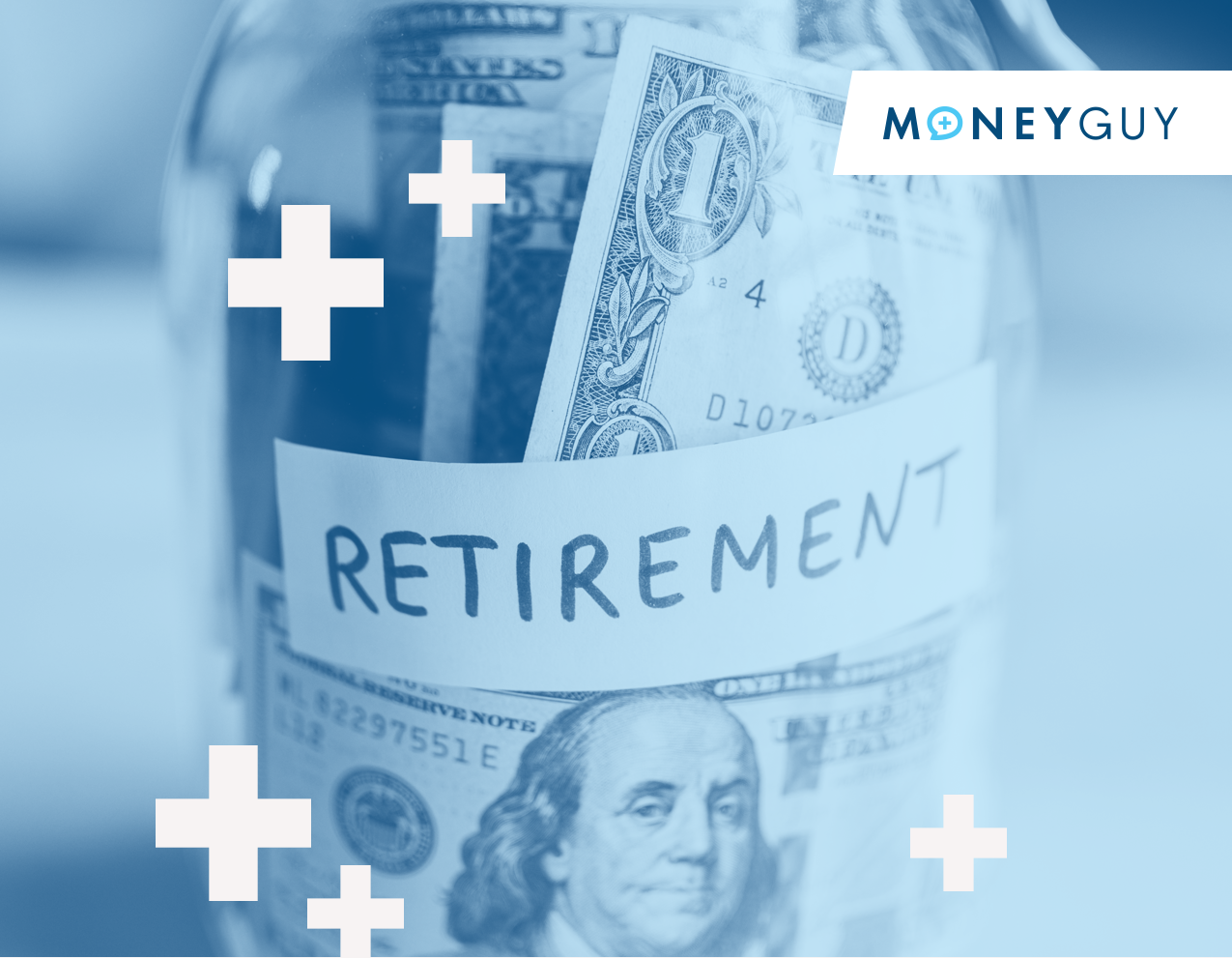We are ready to move on to Jordan’s question next. It says, “My company matches me 100% up to 10%. Whoa, that’s a lot! It says this effectively means I’m saving 20% of my income. Should a Roth IRA be my next goal, and do I have to max it out, even though 5% wouldn’t nearly be maxing it? So how should he think about this? Because this is a very unique opportunity that he should definitely take advantage of.”
I mean, first of all, Jordan, that’s incredible, right? A 10% match on a 10% contribution, that’s insane. Like, we’ve seen a lot of incredibly generous employers out there, but that’s big time. That’s big, big time. We gotta start a movement called “Have You Hugged Your Employer Today?” I mean, because that’s… That’s one that I would definitely go hug my employer for. I’m not a hugger, but I would at least appreciate the attempt, you know? If I had a line outside and be like, “No, no, no, no,” but at least show me. Everybody appreciated the generosity that’s going in.
Because that means, Jordan, that your employer, not only is it a place to work to get your wages, you know, to pay you for a moment of your labor and time, but they also are trying to invest in your future success. And that, and we do the same thing. I love it. I think the most generous plan I’ve seen is we have an employer we’re actually going down there in a few weeks, just in case a few of their participants are watching. Where they put for pretty much every dollar, it turns into $3, which is kind of unheard of. But, Jordan, you’ve got an incredible because what makes yours incredible is it goes up to 10%, because a lot of employers will do dollar for dollar on the first 3%, but to hear 10%, and I’m assuming because you didn’t put it in the disclosure, there’s no cap on that, that’s phenomenal.
So now, let’s get to your question, because you’re saying, “Hey, my employer match is my step two of the Financial Order of Operations. I’m already having to put in 10%, which is going to be 20%. Do I get to count that?” That’s really kind of the question, “Does employer match count?” So, I’m going to see. So, first thing, we talk about you do get to count your employer match, as long as you’re close to the social safety net, of Social Security and other benefits that are out there. But see, what I but I… Because here, let me give you the why on this. A lot of people will say, “Look, if you’re only going to make $50,000 your entire career, Social Security is going to cover a lot of that. So, it’s crazy for me to tell you you can only count your contributions when you have an employer contributing too, because that would be unfair. You might need more of that $50,000 just to live your best life.” But if you are somebody who’s going to make $100,000, $150,000, $200,000 as a household, because maybe you’re a dual-income household, you’re far away from what Social Security can do. So, more and more of the financial weight of independence and retirement is going to fall on your shoulders if you’re on that scope or your path is that way. I don’t think you should count the employer match. You should challenge yourself, so take that into account.
Now, we get to after you go through three, paying off the high-interest debt, four, emergency reserves of 3 to 6 months. You do get to your Roth IRA, which is where your question is, “Okay, if I’m not going to be able to load it up if I put 5% in.” So, I would challenge you. If you feel like, because somebody who’s in their 20s just starting out, I want you to focus on get wealthy behaviors versus stay wealthy behaviors. Your wealth and success are not guaranteed yet. What happens if your employer hits hard times and shuts this down in the future? Or what happens if your lifestyle expands beyond where you’re now? Instead of living the lifestyle of a 20-something who focuses on retirement and creates some forced scarcity in their life so you have automatic for the people, automatic savings, and other things, you just expanded lifestyle. You went and bought the nicer car, got the bigger house, and then life gets shattered before you’ve actually built the foundation of wealth-building assets. That would be a failure. So, I would encourage you, maybe you should go beyond 25%. Yes, that’s the ideal, but there’s nothing wrong with being an overachiever. I love it when I hear people are conquering their finances and the best versions of themselves. You know, it’s funny, bro, we do an annual wealth survey where we ask respondents, “Hey, how did you build your wealth?” We ask them questions about it. What’s really interesting is not one time ever has someone said to, “Oh, gosh, I just… I just saved too much. I started saving too much.” Now, people will say maybe I worked too much or I focused too much on my career. That’s a different thing. No one says, “Oh, man, I just saved too much.” And, to my knowledge, I’m trying to wrack my brain here. I can’t think of one person who’s ever said to me, “Man, I maxed out that Roth IRA and I wish I wouldn’t have. Man, I wish I would’ve upped that Roth IRA.” So, I think, Jordan, your situation, even if it does blow your savings rate past 25%, you include the employer match. I think Roth dollars are so incredible. I would consider loading them up. You bring up a good point. You know, if you are an overachiever and you’re on a good career trajectory where you’re getting pay raises, where you could do maxing out the Roth IRA, don’t have the regrets. I have, you know, mine are pretty and the fact that there were a few years where I was starting a company and money was just so tight because I needed as much cash to keep the company going and just making sure we’re keeping the lights on that I, in my upcoming book, I outline the actual opportunity cost of what those Roth dollars I missed out on are now worth because I’ve got the hindsight of seeing what my other assets have grown to. I calculate that rate of return, and it’s a huge regret.
Now look, mine was noble. I mean, dollars were needed, the cash to keep the lights on, but I’m telling you, Jordan, don’t have those regrets. If you have options and choices, maximize those Roth IRA dollars. There’s a reason the government’s restricting how much you can put in. Go take advantage of that and load up so you can become the best version of your tax-free millionaire self. Learn why Roth IRAs are so powerful and why they might be the perfect next step on your wealth building journey with our Roth IRA Guide.













